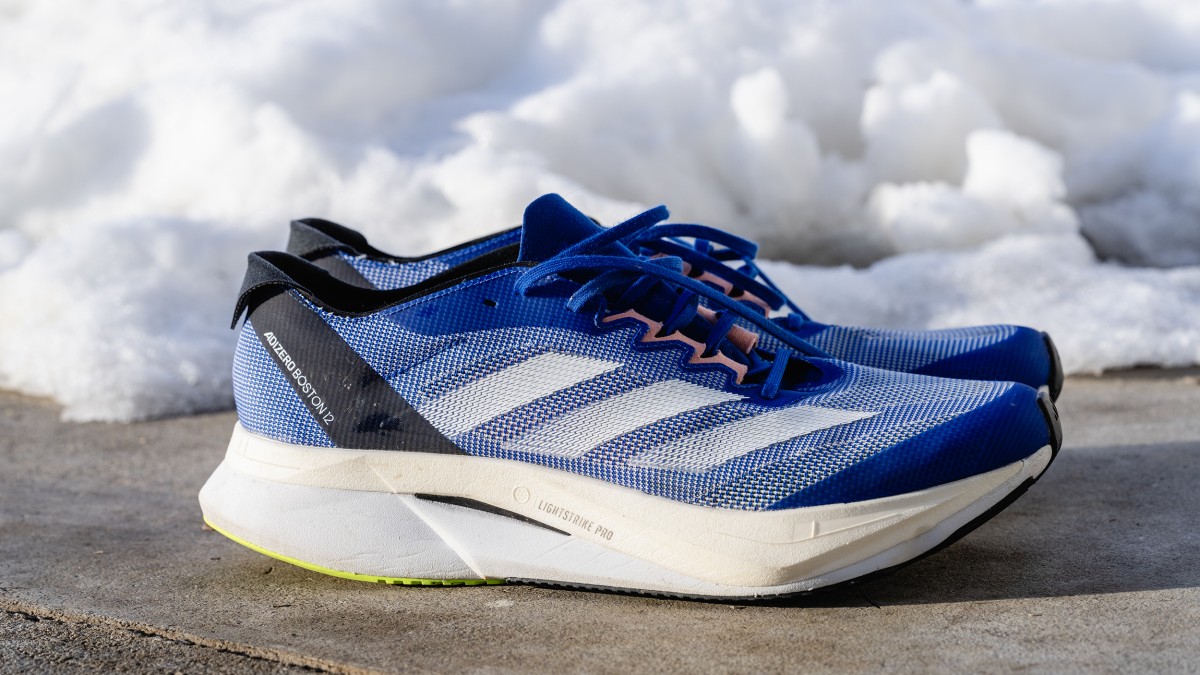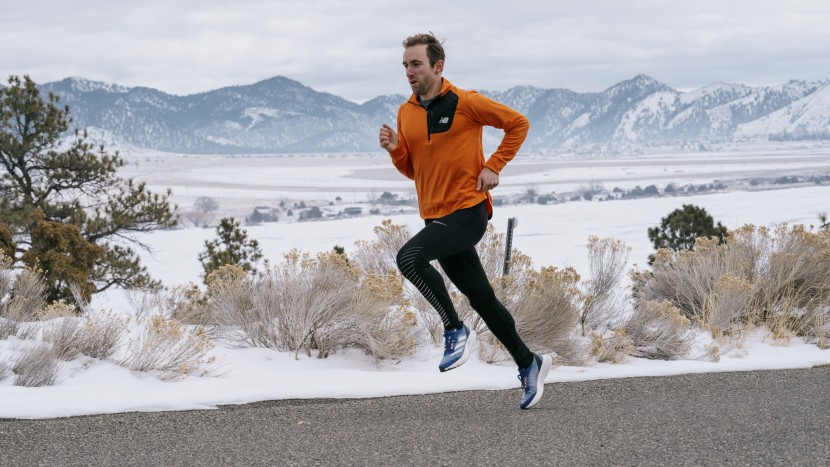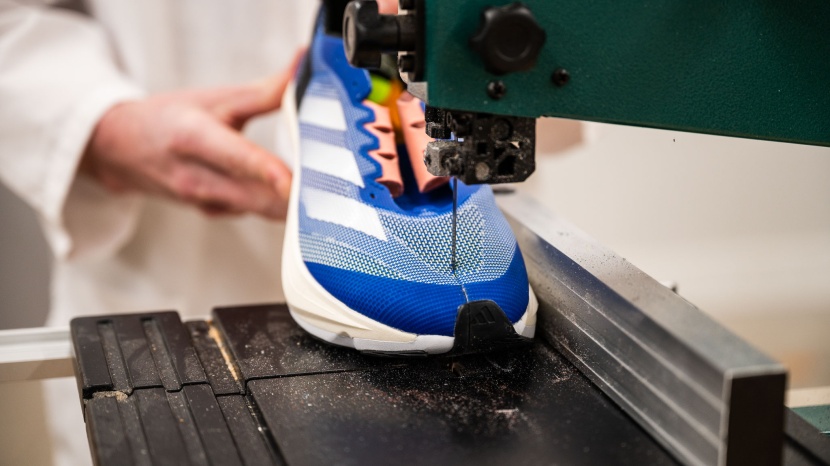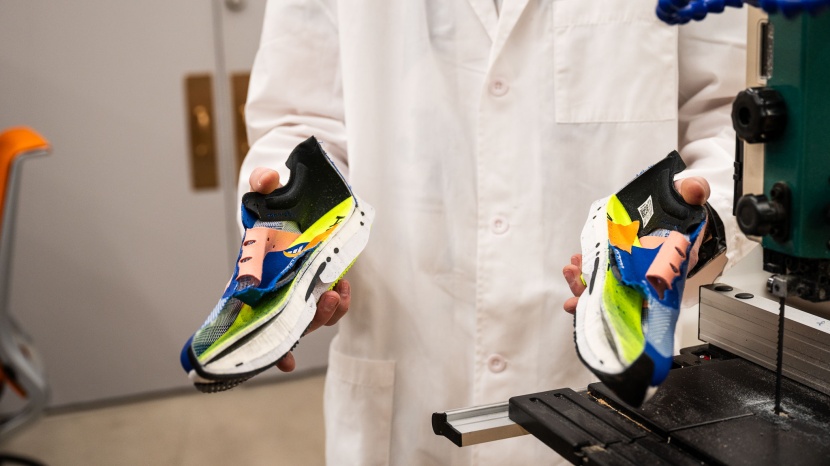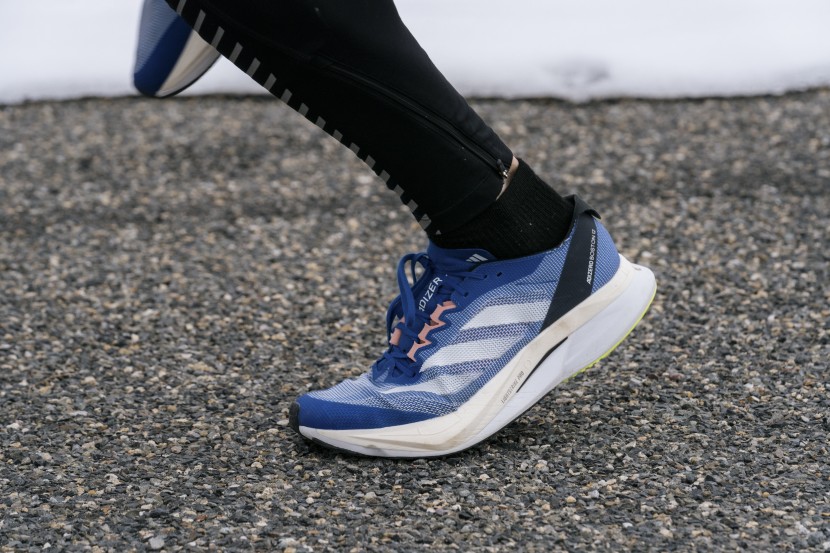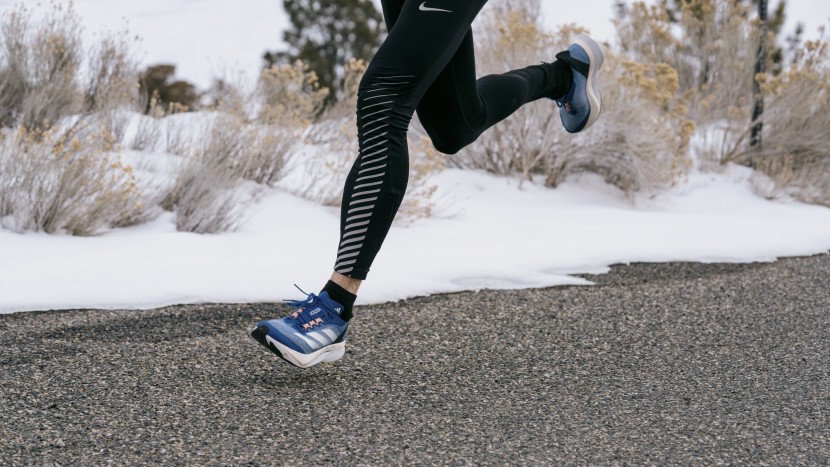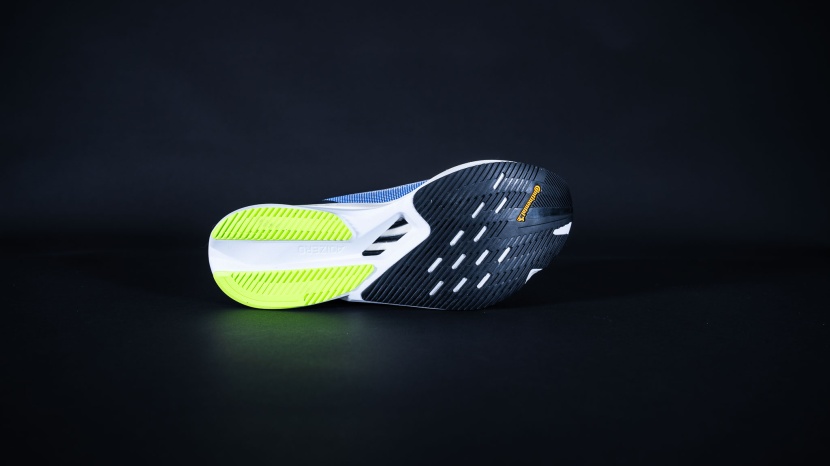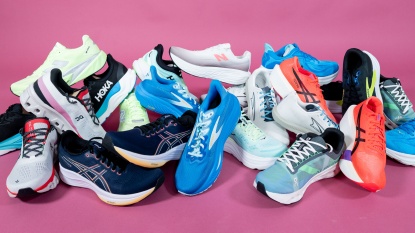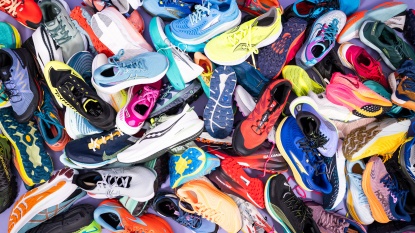
Our Verdict
Our Analysis and Test Results
The Boston 12 is a very versatile shoe across a range of route types. It's most enjoyable at faster paces, but it can relax enough for an easy run. It's very similar to the Puma Deviate Nitro 2, but we prefer its balance of pace and comfort.
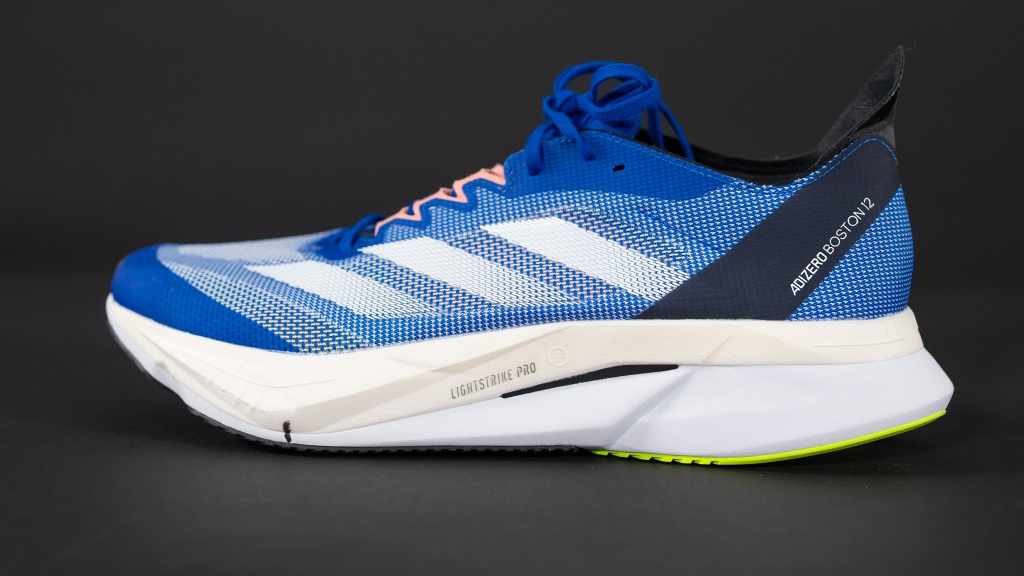
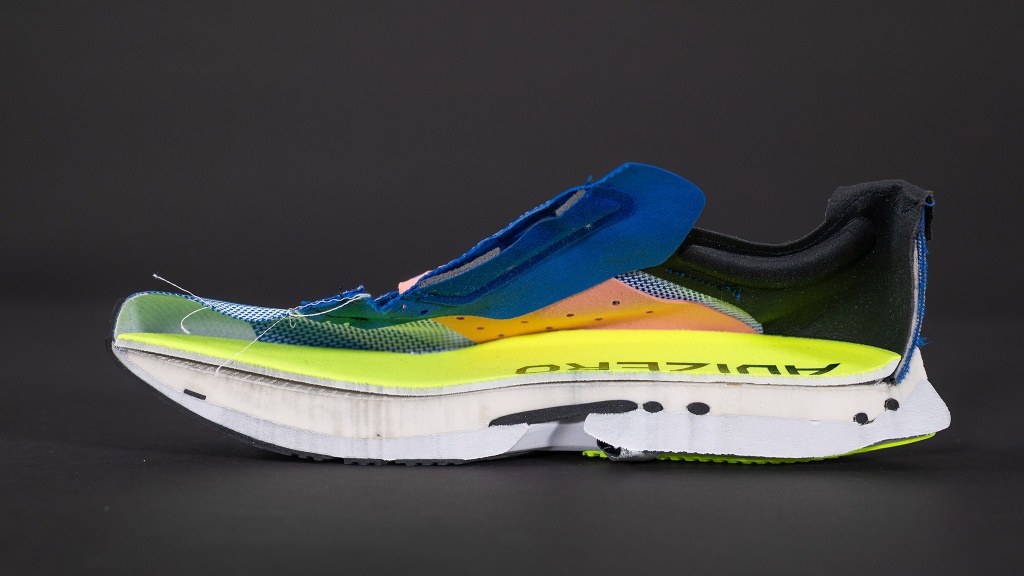
Cushioning
The layered versions of Lightstrike foams allow for a smooth transition from the rear of the foot towards the forefoot. The Boston doesn't feel particularly bouncy or airy as it lands, but it insulates your legs from the pavement and smoothly transitions through your stride. The Lightstrike Pro feels soft without feeling mushy, providing a pleasant motion through the forefoot.
This shoe errs on the performance side of daily training and feels firmer than some of its competitors. Don't take that to mean it isn't comfortably cushioned, though; there's still a lot of foam under your foot (35 mm heel/28 mm forefoot), and we found it very comfortable over 90-120-minute runs on the road.
If you're used to older trainers with only EVA foam or shoes similar to the Brooks Adrenaline, this shoe will feel like you're running on clouds. It just isn't quite as well suited to slow recovery runs as some of our favorite easy-day shoes, which have a more plush or bouncy ride.
The Boston 12 would have scored higher in this category, but we experienced some discomfort on the lateral side of our midfoot on both feet during the first few miles in the shoe. We did some research, and a few other runners who tend to land closer to the lateral side of their foot experienced the same thing. It's something to remember, but it isn't enough to deter us from recommending the shoes. After about an hour in these shoes, they felt great, and we haven't felt it since.
One big plus for the Boston 12 is how easily the EnergyRods disappear. Plated shoes can feel a bit harsh. We didn't notice anything except smooth and propulsive cushioning. Similarly, plated shoes can be uncomfortable to run in at leisurely paces. That's not an issue here, although they encourage you to pick up the pace.
Upper Comfort
Adidas opted for a racer-style upper. It works. It's comfortable. It's breathable. It's also chilly on wet, sub-30-degree runs. That's probably a non-issue for many runners, but our frozen toes demanded we mention it.
We didn't experience any hotspots after the first few minutes of running in the shoe, but we had difficulty getting the lacing right. We found it very easy to overtighten the midfoot section of the shoe. Eventually, we figured it out. We attribute our struggle to Adidas' different lacing structure along that section of the foot (large, soft loops) rather than perforations in the outsole as in the rest of the shoe. We also suspect this may be part of the discomfort we initially felt on the lateral part of our midfoot that quickly disappeared.
The upper worked well throughout our testing. The Boston 12 managed to keep our feet very comfortable during our long runs, which is impressive for such a pared-down upper. The tongue is padded just enough to prevent pressure points on the top of the foot, and foam tabs on the sides of the heel aid the heel cup in providing excellent heel retention. We're also fans of the folding heel pull tab that doubles as extra protection against Achilles rub.
Overall, we think this upper is very comfortable once dialed in, if a little performance-biased. We do think it's worth noting that the Boston recorded one of the lowest toe-box volumes in our standardized lab testing, so it likely isn't the best choice for runners with high-volume feet.
Stability
This is not a great choice if you're after a shoe with lots of support or stability, which tends to be the case when talking about performance-oriented daily trainers. Despite its low-average stack height, the relatively soft foam in the forefoot doesn't lend much lateral stability. The Energyrods help offset the softness of the foam, but it isn't enough to call this a stable, neutral shoe. It's pretty middle of the road.
Responsiveness
Responsiveness is the highlight of the Boston 12. This shoe is comfortably cushioned and can cruise at a relaxed pace, but loves to let it rip in workouts. It also encourages you to turn your easy runs into a tempo run, which can be a drawback if, like us, you lack self-control.
The Boston 12 isn't quite as responsive as the super shoes in our test, but it can handle a broader range of runs while rarely feeling out of place. That's important. You can wear the Boston for your warm-up run and your track session. You can wear the Boston for your easy miles and your next race. All thanks to the great, but not over-the-top, responsiveness — that's awesome versatility.
We've found shoes that can handle a broad range of runs often don't have the pop we want for a fast track session. Because the Boston 12 is a little firmer than many other similar performance-cushioned daily trainers, it can comfortably handle faster workouts on the track. It's not our first choice for true speed sessions, where we prefer something a little lower and slimmer, but it will easily cover most runners' needs.
The thicker chunk of Lightstrike Pro in the forefoot provides significant energy return that the glass-infused EnergyRods direct forward. The shoe doesn't feel as “fun” or “bouncy” as some of its competitors, although we do love the rewarding feeling of pushing through the forefoot in this shoe. Adidas' no-nonsense approach to this shoe makes it subtle and comfortable, and it just plain works when you want to put some power through the shoe.
Weight
The Boston 12 weighs in at 9.95 ounces per shoe in a US men's 10.5. That's pretty average, but the cushioning and responsiveness compensate for a slightly heavier weight. As with most shoes with good grip, the Boston makes a weight sacrifice for a confidence-inspiring outsole. We agree that the performance on wet or slick roads is worth the weight penalty.
Traction
We love the Continental rubber outsole's confidence on pavement. Regardless of conditions, the rubber bites — and bites hard. We've run on ice confidently in these shoes, something only two other pairs in our lineup can say. As gravel/dirt road aficionados, the lack of large crevasses for rocks to wedge themselves into is appreciated, but the lack of lugs does leave the shoes at a disadvantage.
Should You Buy the Adidas Adizero Boston 12?
Comfortable enough for easy days yet snappy enough for speed workouts is an extremely hard balance. Running shoes exist on a spectrum of comfort and speed — very few can successfully do both. We think the Boston 12 is the best take on a shoe that can truly do it all. It's biased towards speed, but as long as you have a little self-control, it's comfortable on easy runs. If you need one shoe to do everything and like to go fast, the Boston 12 is for you. If you are looking for a shoe for workouts, try this one. If you want a fast shoe for racing but don't want to spend super-shoe money, try this one. As long as you're not only running in wet, freezing temperatures, you'll probably enjoy this shoe.
What Other Running Shoes Should You Consider?
The Boston 12 is very similar to the Puma Deviate Nitro 3. However, the Nitro 3 scored a bit higher overall in our testing due to better stability and a more comfortable upper. The Puma is a great combination of comfort and speed, but leans more toward the comfort side of the spectrum. The Adidas Adizero Evo SL stands out as a non-plated option that can crush workouts, and is more comfortable than long efforts than the Boston.


